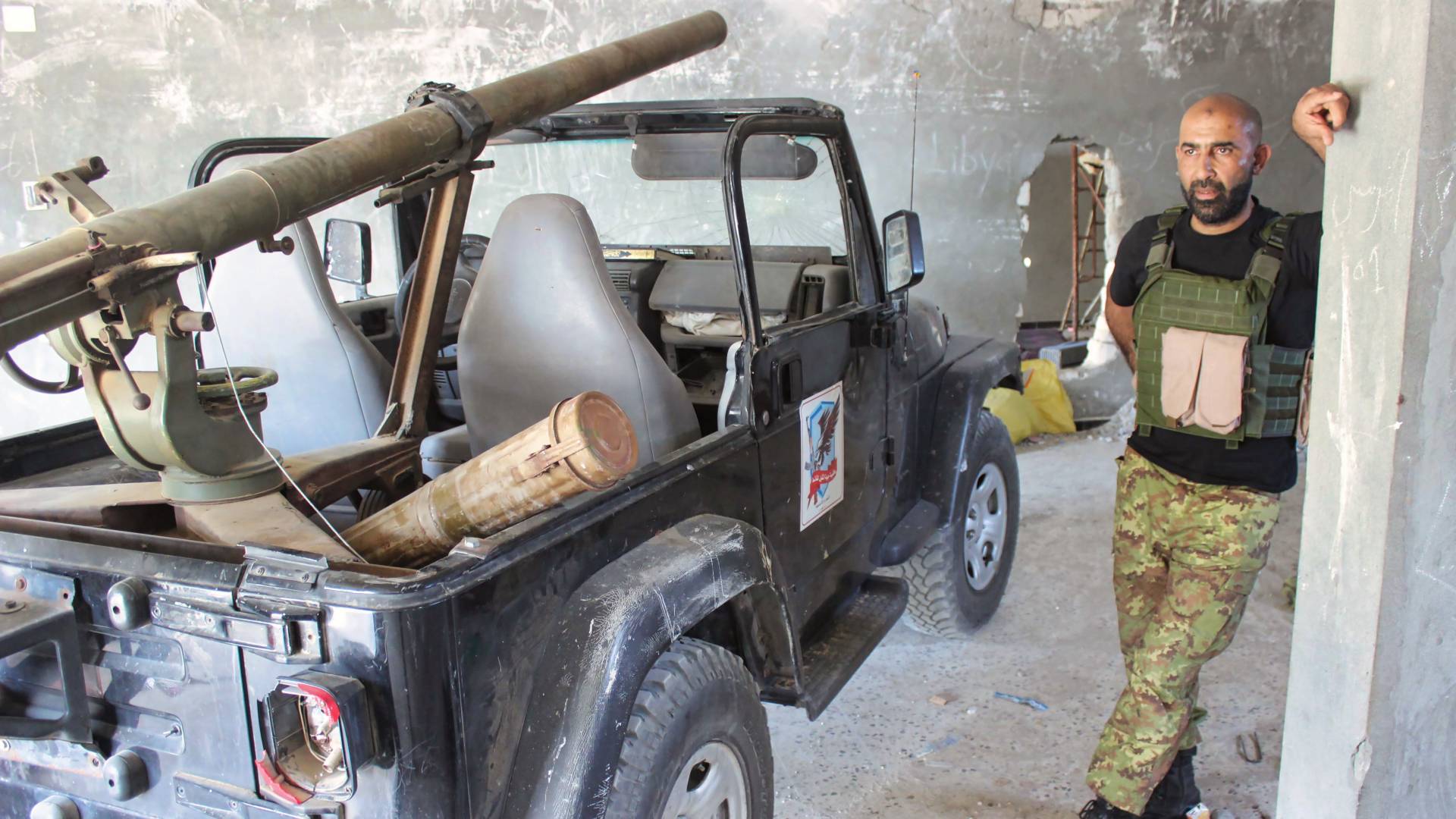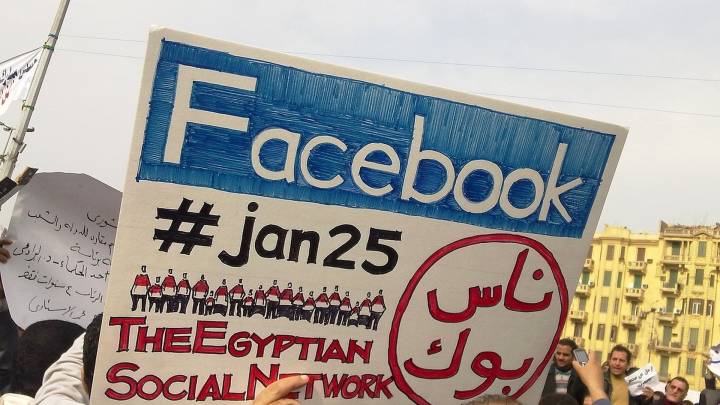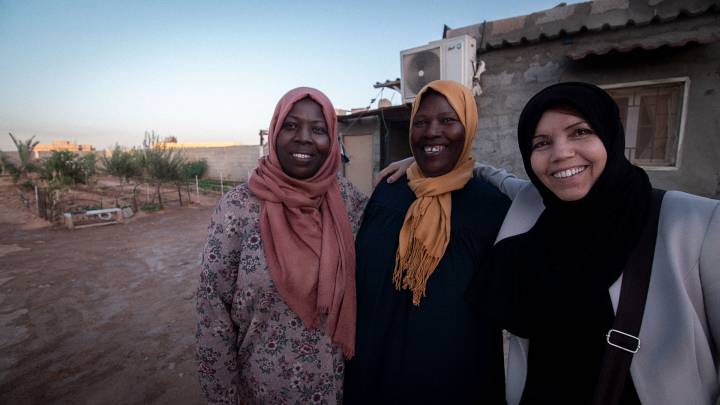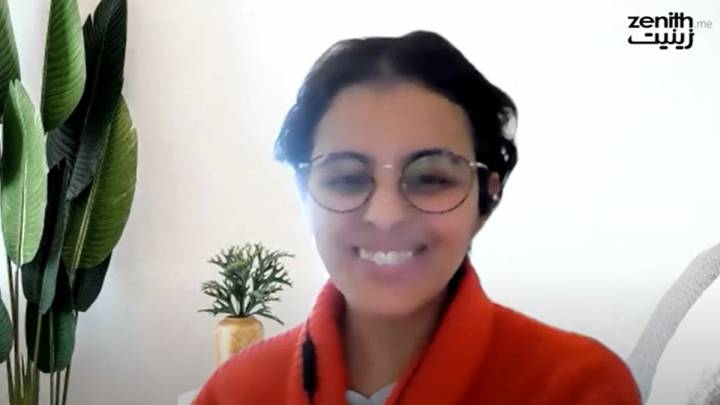The fight for the Libyan capital enters a decisive phase. President Serraj has his back to the wall and it will probably fall to Turkey to save Europe’s partner from the enemy at the gates.
At least 30 recruits of the armed forces of Libya’s Government of National Accord (GNA) were killed in a drone strike on a military academy in the centre of Tripoli on the evening of 4 January. Surveillance camera footage shows recruits taking part in the evening roll call on the parade ground of the al-Hadba barracks when the missile struck. A Ministry of Health spokesperson confirmed that a further 20 young men had been hospitalised for their injuries. Long queues formed in front of many hospitals throughout the night of those wishing to donate blood because medicines, blood reserves and dressings are in short supply in the Libyan capital.
The spokesperson for the Libyan National Army (LNA), Ahmed al-Mismari, claimed that Tripoli’s military academy and airports were legitimate targets because they were being “used by terrorist groups and for arms shipments from Turkey.” Nevertheless, Mismari blamed an alliance of al-Qaeda, the so-called Islamic State and the Muslim Brotherhood for the attack. After examining the debris from the scene of the attack, officials at the military academy officials state a Chinese Wing Loong drone is the more likely culprit, however, this has not been independently verified. Flights were once again suspended from Tripoli’s Mitiga airport having recent reopened following the detonation of several grenades in the passenger section. Khalifa Haftar had previously called for a jihad against the planned “Turkish invasion”, warning that the ports and airports of western Libya would be used as entry points for Turkish troops.
Haftar’s LNA, backed by Egypt, Russia, the UAE and Saudi Arabia, controls the eastern province of Cyrenaica where the majority of Libya’s oil reserves are located. Tripoli, which is were Muammar Gaddafi based the state institutions, is in the hands of Prime Minister Fayez al-Sarraj, independent militias and army units from western Libya.
Young men came from all over the country to the military academy in al-Hadba to train as soldiers in the GNA-controlled western Libyan army. Haftar now aims to rid Tripoli of militias after his victory against Islamist fighters in Benghazi. The militias however are not stationed at the academy.
After months of stalemate, in December the LNA advanced to up to 8km from the city centre at several points along the 80 km frontline. Sarraj, who was appointed as prime minister at the peace conference in the Moroccan town of Shkirat, has recently agreed an assistance pact with Turkish President Recep Tayyib Erdoğan. The agreement includes granting Turkey the right to explore gas deposits off the Libya coast.
Turkey's intervention in Libya came as surprise to many diplomats
On 6 January Erdogan announced the official start of Turkey’s mission in Libya. Turkish media has reported that command centres will be established in Misrata and Tripoli, and that two frigates currently based in Algeria will set sail for the Gulf of Sirte. Over the last two weeks, Syrian volunteers have been arriving on board civilian aircraft operated by Libyan Wings and Buraq Air. According to a recent report by the UN Panel of Experts on Libya, containers ships filled with Turkish weapons have been arriving at ports in western Libya for years.
The stationing of Syrian volunteers is considered controversial event among Tripoli’s defenders. The Turkish army cooperates with remnants of the former Free Syrian Army (FSA) who operate in western Syria. According to the Syrian Observatory for Human Rights (SOHR), recruitment offices are already signing up volunteers for the fight against Haftar’s forces in Libya. Sources from the Syrian opposition have identified on intercepted radio transmissions that one of the Syrian groups arriving in Libya is Faylaq al-Sham.
According to those inside Islamist groups, an advance party boarded a Boeing 737 bound for Tripoli at 04:00 on 27 December. SOHR estimates that 300 former FSA fighters are already fighting on the frontline in Ain Zara, with another an alleged 1,000 to follow. The defence analyst, Babak Taghvaee, believes he has identified five such mercenary flights, which may mean that up to 800 have arrived in Misrata and Tripoli. The unity government of Sarraj vehemently denies that Syria ex-FSA fighters have arrived in Libya. Deutsche Presse-Agentur Middle East correspondent Simon Kremer has, however, uncovered video of fighters speaking in an Aleppo accent recorded south of Tripoli.
Until recently flights between Libya and Turkey flowed in the other direction. The airline Libyan Wings, founded in 2013, is allegedly run by Abdulhakim Behadj. Belhadj is a former inmate of Guantanamo Bay, who was accused of being an al-Qaeda commander. Western intelligence agencies extensively persecuted him before handing him over to Gaddafi. After the revolutionaries took Tripoli, Belhadj became Tripoli’s military commander at the end of 2011. Ever since then he has been considered a key figure in funnelling Libyan fighters and weapons to Syria.
The political analyst Younis Issa fears that “Libya is threatened with division due to the open backing of foreign government for the individual warring parties.” On 3 January UN Secretary General Antonio Guterres called on all international actors to comply with the arms embargo imposed by the UN Security Council during the uprising against Gaddafi. Yet the more countries become militarily involved in Libya, the less leverage the UN mission has.
As so often has been the case in recent years, the escalation of the conflicts in the days before drew almost no international attention. After the meeting of the Turkish parliament on the sending of the army to Libya, general mobilisation was declared in Cyrenaica without much fanfare. At the same, a video circulated on social media showing the arrival of 100 Toyota pickup trucks in the ports of Benghazi. Another video showed a several-kilometre-long military convoy on route to Tripoli.
It is not known who supplied the military beige-coloured vehicles, however, it is suspected that either Egyptian or Emirati middleman had a hand in their delivery. President Abdel Fatah al-Sisi has been arming Haftar’s LNA for years. In 2014 videos emerged that show the Egyptian helicopters deploying in the eastern port city Derna, which was then occupied by radical Islamist groups.
Despite the arms embargo and the evidence published by a panel of experts, nobody has so far been bothered by state-controlled arms smuggling, as their conflicts seemed to be local and somewhat pointless from the outside. But since the Turkey’s plans for stationing troops in Libya has come to light everything has changed. On 2 January the Turkish parliament in Ankara voted 324 to 185 in favour to deployment, clearing the way for Turkey to become officially involved in Libya. Ünal Çeviköz, the deputy leader of the Turkish opposition party CHP, strongly warned against embarking on a military adventure in North Africa and pleaded for a negotiated solution in Libya. His efforts were in vain. Erdogan may now deploy the Turkish air force, army and navy for an entire year to save the Libyan unity government from defeat. Perhaps more importantly is that Erdogan can protect Sarraj from the militias defending his government on the frontline in southern Tripoli.
The prime minister, who is internationally recognised but not by the Libyan parliament, had already asked Ankara in mid-December for military assistance in the fight against his opponent’s army in the east of the country. Since the beginning of April, Haftar’s LNA has been trying to drive out of Tripoli the militias that overthrew Gaddafi almost nine years ago and are now fighting for Sarraj. But the former businessman has to rely mainly on the well-organised units from Misrata, as many militia in the capital are driven by their own interests.
The battle for control over South Tripoli
Turkish Vice President Fuat Oktay clearly stated to the Anadolu news agency on Tuesday the nature of Turkey’s involvement in the civil war in Libya. He said: “The Libyan-Turkish cooperation agreement makes any plan directed against Turkey in the region impossible.”
In addition the agreement on military aid, Sarraj and Erdogan surprised many Mediterranean countries by creating a common economic zone in the eastern Mediterranean. Erdogan has found an important ally in the internationally-appointed Sarraj in the dispute over gas reserves in the dispute over gas reserves in the eastern Mediterranean. Greece, Egypt and Cyprus bitterly oppose the Libyan-Turkish “Memorandum of Understanding” with the largely powerless government in Tripoli. Cairo and Athens want to prevent the exploration and possible extraction of the suspected gas deposits by Turkish companies. In the short term, the government agreed with Israel on the day of the vote in the Turkish parliament to jointly produce oil and gas off Cyprus. Greek Foreign Minister Nikos Dendias visited Haftar in Benghazi on 22 December and shortly afterwards his navy moored a Turkish cargo ship off the eastern coast of Libya. Greek-Egyptian naval manoeuvre off Libya are planned for the second week of January.
Turkey receives support for its operations in Libya from Algeria. A spokesperson for the Algerian Foreign Ministry said on 31 December that the treaty between Libya and Algeria is exclusively a matter for both countries. The Italian analysis website ItalMilRadar reported that at least three Boeing 747 transport aircraft flew via Algiers to the Libyan port of Misrata in the last week of December. According to local commanders loaded with Turkish weapons.
At the front, in the Tripoli district of Salah al-Din, the LNA advanced several hundred metres towards the city centre by the end of December. Since the offensive began on 4 April, the 80km-long frontline south of Tripoli has hardly changed for months. Mercenaries from Sudan and Russian specialists will be deployed on the side of the LNA.
Previously almost every advance of the eastern Libyan attackers was accompanied by photo and videos on Facebook. The sudden absence of such reports from the front in Salah al-Din is so far considered the strongest proof that foreign mercenaries are involved in the LNA offensive. Videos of young fighters in sandals with cartridge belts slung over their shoulders are rarely seen anymore. Today drones and tanks dominate the action. On Monday a particularly large number of shells hit Salah al-Din. The defenders suspect that that Haftar is trying to capture strategic points in Tripoli before Turkish troops arrive.
Several EU foreign ministers who were scheduled to visit the capital on 7 January have had their visits temporarily postponed by the government in Tripoli. According to the prime minister’s office, they do not have the capacity to host diplomatic visitors.




